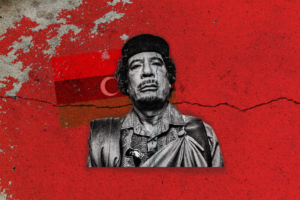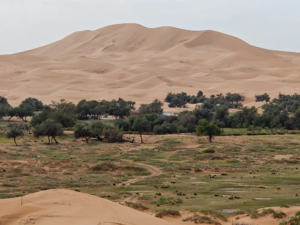Detroit’s reparations task force is starting to pitch potential solutions after more than a year of meetings that have predominantly centered on history rather than generating fresh ideas.
The big picture: Detroit is among a growing number of municipalities and states examining possible reparations for Black American descendants of enslavement and Jim Crow-era discrimination.
- But the local task force has been hampered by in-fighting and resignations.
Why it matters: Co-chair Keith Williams has been careful to consider lofty ideas due to potential legal constraints. That’s caused a rift with other members of the body who believe anything less than financial payments isn’t enough.
Driving the news: The task force held a series of town halls this week in hopes of engaging the public. At Monday’s town hall, Williams told reporters he wants to use vacant land for a restitutive housing program that he called the “reparations land bank.”
What they’re saying: “We gotta find solutions and we gotta know how to pay for this because you can’t give people grandiose ideas you know won’t come to fruition,” Williams said.
- “Look at all this land over here,” Williams said, motioning to the open lots surrounding a historic church in the Northwest Goldberg neighborhood.
Between the lines: Williams didn’t have many details about how such a program would work, but it’s the first concrete idea suggested by the chair.
Behind the scenes: Williams has faced criticism from task force members, including some who have resigned, expressing concerns with the body’s direction. He’s been criticized for speaking over members such as Gregory Hicks or Janis Hazel.
- Williams, who led the successful effort to bring reparations in front of Detroit voters, is now the most influential member of the task force, which is expected to provide a recommendation to City Council on how to disperse reparations to Black Detroiters.
By the numbers: With a total budget of $350,000, the task force, which hired a project manager this year, has spent about $120,000 so far.
What’s next: To further study the concept of a reparations land bank, Williams wants to dig up documents containing plans for Black people who were displaced during the 1950s after the creation of I-375 and destruction of Black Bottom and Paradise Valley, as well as historic plans for unused land.




